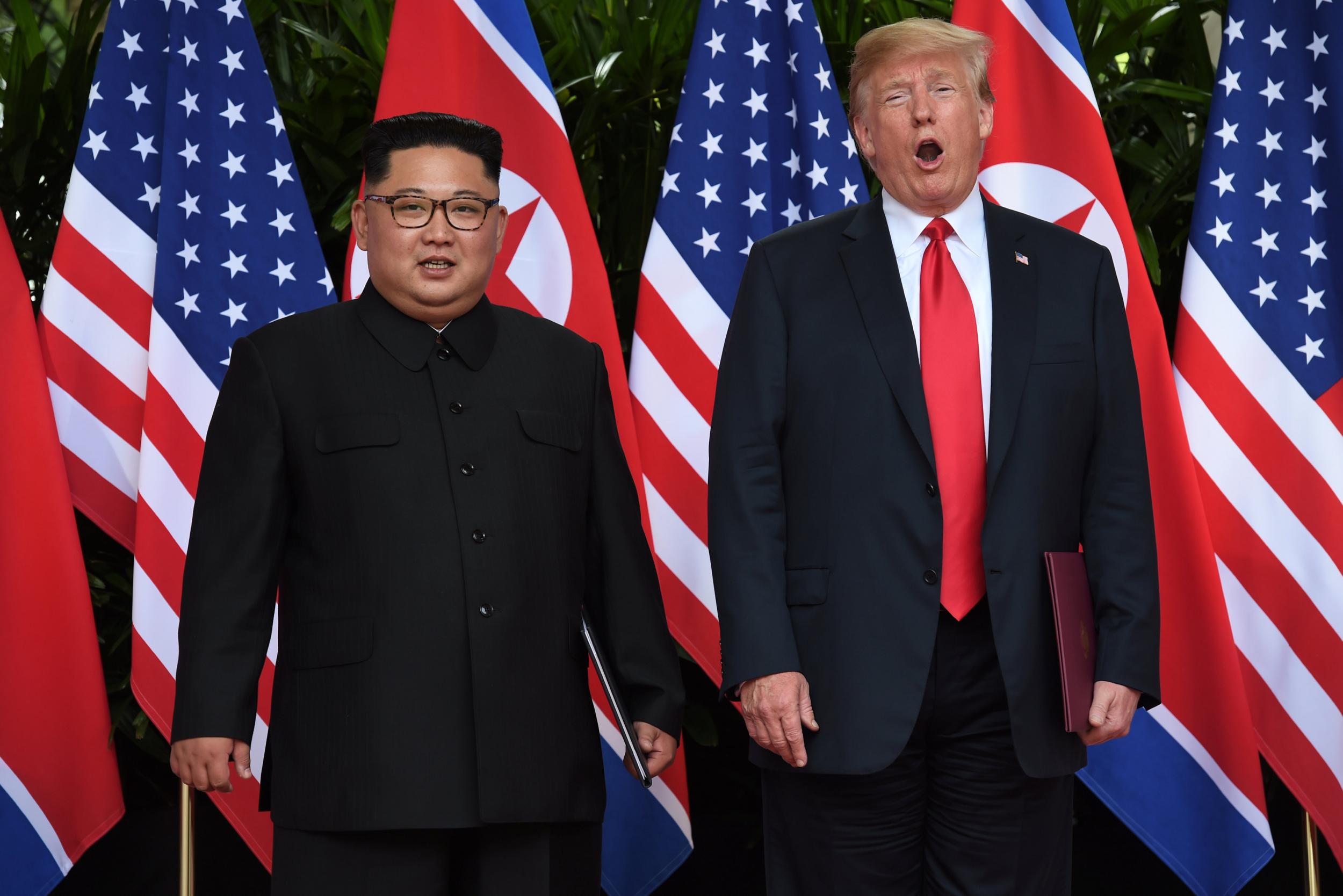Iran warns North Korea not to trust the US over historic summit: 'Trump might cancel deal before returning home’
Landmark meeting in Singapore viewed as ‘little more than a publicity stunt’ by sceptical Tehran after US president Donald Trump’s withdrawal from 2015 Iran deal
Iran has told North Korea's Kim Jong-un not to trust US President Donald Trump after the pair's historic meeting, warning the American leader could “cancel the agreement before returning home“.
The US and North Korean leaders met for the first time, for a landmark summit in Singapore on Tuesday in which they pledged to work towards the complete denuclearisation of the Korean peninsula.
Iran, however, cast doubt on the US’s reliability as a diplomatic partner, citing its own experiences after the Trump administration withdrew from the Joint Comprehensive Plan of Action (JCPOA) – the Iran nuclear deal – last month.

“We don't know what type of person the North Korean leader is negotiating with. It is not clear that he would not cancel the agreement before returning home,“ Iranian government spokesman Mohammad Bagher Nobakht was quoted as saying by IRNA news agency.
“This man does not represent the American people, and they will surely distance themselves from him at the next elections,” he said.
Iranian foreign ministry spokesperson Bahram Qasemi also poured scorn on diplomatic efforts, advising the North Korean leadership to exercise “complete vigilance“ in its dealings with Washington.
President Trump has insisted a final agreement with North Korea must include total nuclear disarmament of the rogue state, with international inspections to verify progress, in return for US security guarantees.

The US leader and his North Korean counterpart hailed the initial talks as constructive.
The view from Iran, however, is sceptical.
“[Iranians] will see [the summit] as little more than a publicity stunt that legitimises both Mr Trump and Mr Kim,” Dr Roham Alvandi, a professor at the London School of Economics, told The Independent.
“Iranians will ask: Why is the United States willing to negotiate with North Korea, a nation with a nuclear arsenal, while refusing to pursue detente with Iran, a country that has no nuclear weapons and has agreed to strict international safeguards on its civilian nuclear programme?”
During a lengthy media conference in Singapore, Mr Trump said that following the successful talks with North Korea, the US would be open to a new, “real deal” with Iran over its nuclear ambitions.
In May, the US pulled out of a landmark 2015 deal agreed between Tehran and world powers that lifted crippling international sanctions in return for curbs on Iran’s nuclear programme.
It is unlikely, however, Iran would return so quickly to the negotiating table, said Dr Sanam Vakil, a fellow at London’s Chatham House.
“Iran has a wide variety of strategies that are predicated on a variety of timelines to deal with the Trump administration,” she told The Independent.
“The North Korea deal and any new Iran deal would be maybe similar in structure, but the context is very different.
“With Pyongyang, China and Japan are keen on a changed North Korea. When it comes to Iran, regional powers Israel and Saudi Arabia don’t trust Tehran enough, and don’t want any Washington concessions.”
The current terms of the JCPOA draw down will expire in November.
The remaining signatories to the deal – Iran, the UK, France, Germany, Russia and China – are scrambling to pressure other governments – such as India and Turkey – as well as the private sector, to save the deal.
Join our commenting forum
Join thought-provoking conversations, follow other Independent readers and see their replies
Comments
Bookmark popover
Removed from bookmarks